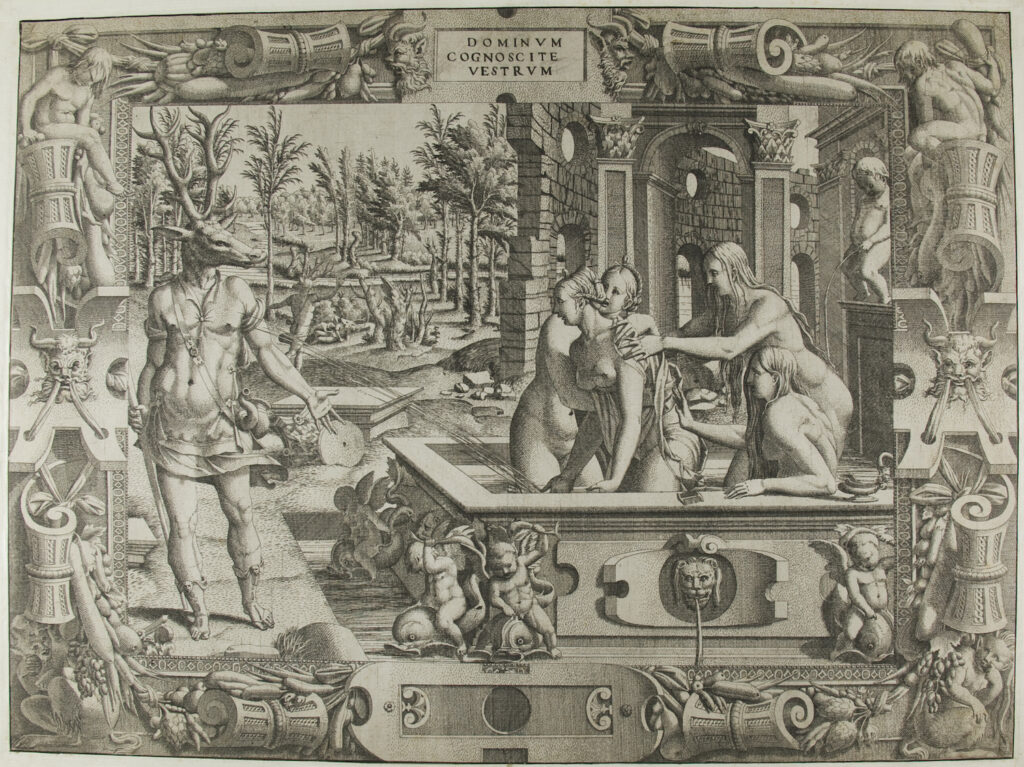“διὰ τί, πολλῶν ὄντων ἐν Ῥώμῃ ναῶν Ἀρτέμιδος, εἰς μόνον τὸν ἐν τῷ καλουμένῳ Πατρικίῳ στενωπῷ ἄνδρες οὐκ εἰσίασιν;”
ἢ διὰ τὸν λεγόμενον μῦθον; γυναῖκα γὰρ αὐτόθι τὴν θεὸν σεβομένην βιαζόμενός τις ὑπὸ τῶν κυνῶν διεσπάσθη, καὶ ἀπὸ τούτου δεισιδαιμονίας γενομένης ἄνδρες οὐκ εἰσίασιν.
—Plutarch, Quaestiones Romanae
“Why, of all the temples of Diana in Rome, is there one in the Vicus Patricius where men do not enter?”
Is it because of this story that’s told? In that place a man assaulted a woman dedicated to the goddess and was torn to pieces by dogs and (because a fear of the gods arose from this) men don’t go in there.
This reminded me of the Actaeon story, with some significant differences.
As told by Ovid (Metamorphoses 3.138-250), Actaeon makes an innocent mistake and happens upon Diana (Greek Artemis) while she’s bathing naked in a pool. She transforms him into a deer and he’s hunted to death by his own dogs.

Ovid seems to shape his stories of the gods to make them more culpable, and maybe Plutarch’s story suggests another (earlier? later?) version where Actaeon’s metamorphosis is due to actual crimes on his part (assault and blasphemy), rather than the whim of an offended deity.
